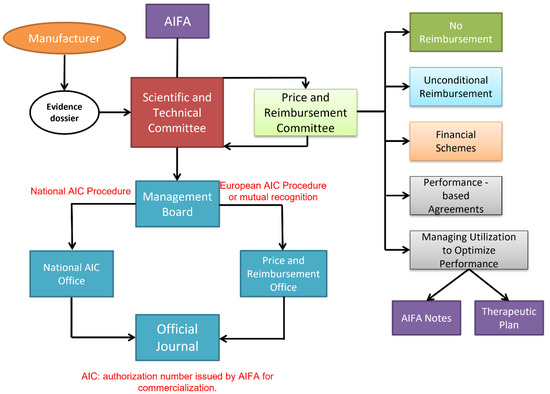Hungary Announces Significant Reforms to Named Patient Reimbursement Program

**Hungary Announces Significant Reforms to Named Patient Reimbursement Program**
In a landmark move aimed at improving access to life-saving treatments, the Hungarian government has announced sweeping reforms to its Named Patient Reimbursement Program (NPRP). The changes, which were unveiled by the Ministry of Health on [insert date], are designed to streamline the process of obtaining reimbursement for unlicensed or experimental medicines, ensuring that patients with rare or severe conditions can access critical therapies more efficiently.
The reforms come in response to growing concerns from patient advocacy groups, healthcare professionals, and pharmaceutical companies about the limitations of the existing system. By addressing these concerns, Hungary aims to align its healthcare policies with international best practices and enhance the quality of care for its citizens.
### What is the Named Patient Reimbursement Program?
The Named Patient Reimbursement Program is a mechanism that allows patients to access medicines that have not yet been approved for general use in Hungary. These drugs may be in the experimental phase, awaiting regulatory approval, or approved in other countries but not yet available locally. The program is particularly crucial for patients with rare diseases or conditions for which no standard treatment exists.
Under the NPRP, a physician can request access to a specific medication on behalf of a patient, citing medical necessity. If approved, the government reimburses the cost of the drug, either partially or fully, depending on the case. However, the previous system was often criticized for its bureaucratic delays, lack of transparency, and inconsistent decision-making.
### Key Reforms to the NPRP
The new reforms aim to address these shortcomings and make the program more patient-centric. Below are the key changes announced:
1. **Faster Approval Timelines**
One of the most significant changes is the introduction of strict timelines for processing reimbursement requests. Previously, patients and physicians often faced long waiting periods, sometimes lasting months, to receive a decision. Under the new rules, the Ministry of Health has committed to processing applications within 30 days for standard cases and 15 days for urgent, life-threatening conditions.
2. **Centralized Digital Platform**
To reduce administrative bottlenecks, the government will launch a centralized digital platform for submitting and tracking reimbursement requests. This platform will allow physicians, patients, and pharmaceutical companies to monitor the status of applications in real-time, improving transparency and accountability.
3. **Expanded Eligibility Criteria**
The reforms also expand the eligibility criteria for the program. Previously, only patients with extremely rare or terminal conditions were considered. The updated guidelines will include a broader range of diseases, including chronic conditions that significantly impact quality of life but may not be immediately life-threatening.
4. **Increased Budget Allocation**
Recognizing the financial burden of high-cost therapies, the government has pledged to increase the annual budget for the NPRP by 25%. This additional funding will ensure that more patients can benefit from the program without compromising its sustainability.
5. **Collaboration with International Agencies**
To expedite access to cutting-edge treatments, Hungary will collaborate more closely with international regulatory agencies such as the European Medicines Agency (EMA). This will allow the NPRP to consider data from global clinical trials and real-world evidence when evaluating reimbursement requests.
6. **Patient Advocacy Involvement**
For the first time, patient advocacy groups will have a formal role in the decision-making process. Representatives from these groups will be invited to participate in advisory panels, ensuring that patient perspectives are considered in policy decisions.
### Implications for Patients and Healthcare Providers
The reforms are expected to have a profound impact on patients and healthcare providers in Hungary. For patients, the changes promise quicker access to potentially life-saving treatments and a more transparent process. For physicians, the streamlined system will reduce administrative burdens, allowing them to focus more on patient care.
Pharmaceutical companies are also likely to benefit from the reforms. The faster approval timelines and increased budget allocation could encourage more companies to make their innovative therapies available in Hungary, fostering a more competitive and dynamic healthcare market.
### Challenges and Future Outlook
While the reforms have been widely welcomed, some experts caution that their success will depend on effective implementation. The centralized digital platform, for example, will require significant investment in infrastructure and training. Additionally, the expanded eligibility criteria could lead to an increase in applications, potentially straining the system if not managed properly.
Despite these challenges, the announcement marks a significant step forward for Hungary’s healthcare system. By modernizing the Named Patient Reimbursement Program, the government is not only addressing immediate gaps but also laying the groundwork for a more equitable and efficient healthcare framework.
As the reforms take effect in the coming months, all eyes will be on Hungary to see how these changes translate into real-world outcomes. If successful, the revamped NPRP could serve as a model for other countries looking to improve access to innovative therapies.
### Conclusion
Hungary’s decision to reform its Named Patient Reimbursement Program reflects a growing recognition of the need for patient-centric healthcare policies. By prioritizing speed,